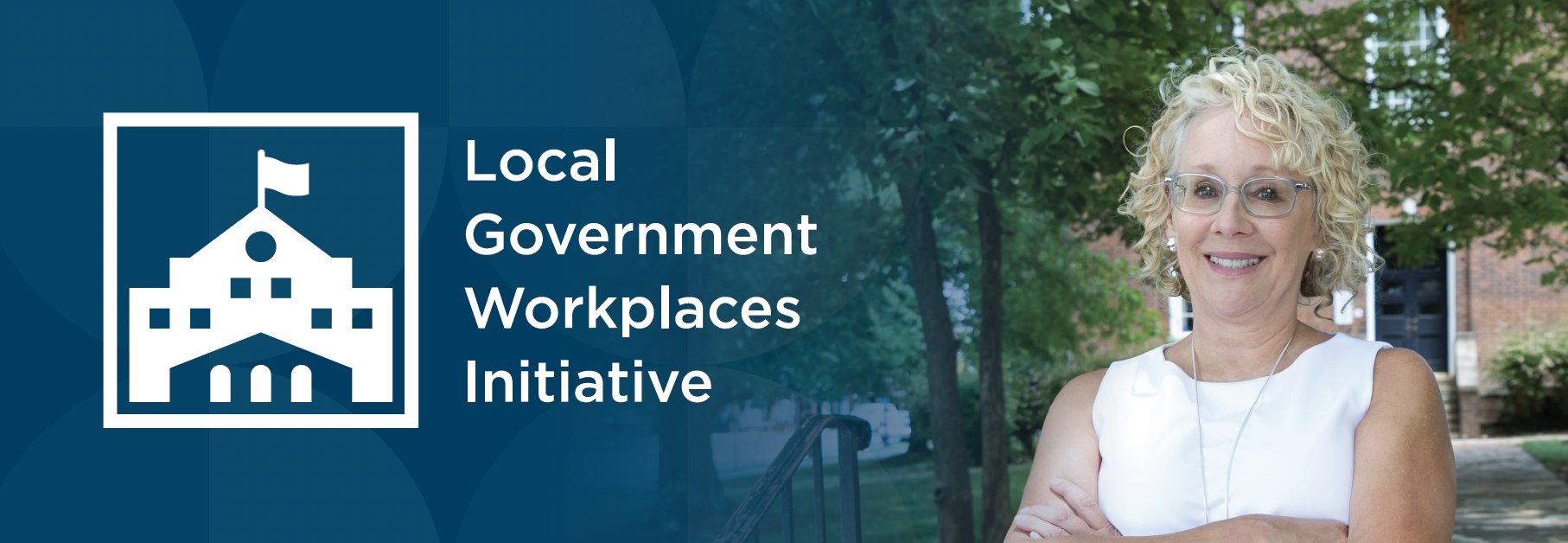20 Years of Improving Local Government Workplaces
The Local Government Workplaces Initiative (LGWI) at the UNC School of Government is the only university-based center in the country dedicated to local government workplace climate research. The center is led by Dr. Leisha DeHart-Davis, professor of public administration and government and director of the Local Government Workplaces Initiative.
LGWI began in 2004 at the University of Kansas’s School of Public Affairs and Administration and was formalized after DeHart-Davis joined UNC-Chapel Hill. The center aims to help cities and counties create great workplaces and improve public service delivery by listening and responding to employees. Over twenty years, LGWI has surveyed, interviewed, and facilitated group discussions for over 25,000 local government employees and has completed 42 workplace climate surveys with local governments both inside and outside North Carolina.
“We aim to be the go-to resource for local government workplace climate improvements,” said Clay Fleming, assistant director of LGWI. “When local governments across the country think about listening to employees, we want to be the first choice.”
One service LGWI offers local government is a comprehensive workplace climate survey with evidence-based questions that can be customized according to a local government’s needs. Additional services include facilitating pre- or post-survey focus groups, infographics, creating action plans, and customized training for employees or leadership, in addition to research contract services.
Support in Guilford County
In 2021, the Guilford County Board of Commissioners updated the core values and goals for the County office. They established “Our People Matter” as a value, reflecting a desire to support employees well-being and provide a positive and compassionate office environment. They engaged LGWI to conduct a workplace climate study to give leadership a deeper understanding of employees’ perspectives and attitudes.
LGWI conducted two surveys, one in 2021 and one in 2023. The 2021 survey had a 63 percent response rate and revealed strengths in supervisory practices, teamwork, organization identification, and values, as well as opportunities for improving employee voice, pay and benefit satisfaction, and burnout.
Guilford County took recommendations from its employees and LGWI and set goals to improve results. Some of the action steps they took include creating a communications department, forming a committee that gives employees a voice in policy and workplace improvements, adopting new pay and benefit plans, increasing technology investments and adjusting staffing ratios to prevent burnout, and holding small group sessions for open discussions with leadership.
When LGWI compared the 2021 and 2023 survey results, it revealed that the County had 16 improvements, including greater employee voice, less burnout, and higher pay satisfaction. The response rate was also 11 percent higher than the 2021 survey, indicating more engagement.
“Guilford County has partnered with LGWI on two climate surveys, several employee focus group processes, and related follow-up initiatives,” said Daphne Taylor, assistant director of Guilford County human resources. “The LGWI team brings expertise, transparency, and objectivity to the process, which has fostered a sense of trust among our employees. The partnership has produced tangible benefits and has been well worth the investment."
Through engaging LGWI, Guilford County was able to understand employee needs and implement action steps that improved the workplace.
Impact on local governments
Beyond Guilford County, other local governments have used survey results to transform their workplace climate through initiatives like:
- Changing communications strategies to increase transparency, clarity, and accessibility
- Training and leadership coaching for employees to enhance their skills
- Strategic planning to create employee-centered metrics and goals within the organization
- Creating employee task forces to increase employee input in decisions
- Increasing manager-employee interaction opportunities to enhance transparency and build trust
"It’s critical for local governments to engage with their employees; the dividends are monumental,” said Lloyd Payne, city manager of the City of Concord. “When the City of Concord decided to survey its employees, we hired LGWI. As a result of what we learned, we have implemented dozens of new initiatives that have helped us keep our employee turnover rate low, even in the current job market."
Data supporting innovative research
DeHart-Davis uses data from the initiative in her academic research. So far, the data has been used for 23 journal articles and an award-winning book.
“I am currently working with a group of scholars to study citizen incivility in local government,” said DeHart-Davis. “Incivility burns out employees, increases quit rates, and affects public service delivery. We are studying how local governments can manage incivility to protect employees and improve public service delivery. Data from LGWI is essential in projects like this”.
Several papers using LGWI data have won best-article awards, and DeHart-Davis received the 2024 Herbert Simon Award for the Scientific Study of Bureaucracy based on her research with LGWI data.
LGWI is an important part of the School of Government’s mission to serve the state and is an invaluable resource for local governments seeking to better understand their employees and improve their workplace climates.If you are looking to partner with LGWI on a project, reach out to sog_lgwi@unc.edu.
Published July 9, 2025


